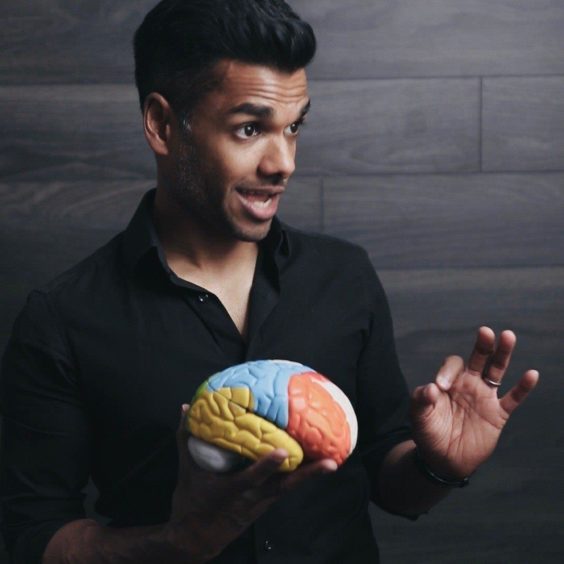An Aberdeen doctor has given his top treatment tips on how to steer clear of “lockdown brain”, ahead of his appearance on a prime time TV show.
Dr Tharaka Gunarathne will feature on Channel 4’s Can I Improve My Memory? episode tonight at 8pm.
On the show celebs will be guided by memory masters like Dr Tharaka, who share the secrets of their success and change the way the celebrity contestants think.
The famous contestants are given one week to memorise hundreds of niche facts and master mind-bending techniques, before being put on the spot in rigorous quiz conditions.
Aberdeen University alumni Dr Tharaka said “memory, mindset and motivation” is his passion.
What is lockdown brain?
As a medical doctor, psychiatrist and high-performance coach, Dr Tharaka is interested in the concept of “lockdown brain” or “lockdown brain fog”.
He said the phenomenon is a collection of signs that have to do with our difficulty in being able to focus, and is not a disease or a diagnosis.

Over the last year, some people may have found themselves with “a bit more mental sluggishness”, where concentrating has gotten harder and memories have become hazier.
Why are we experiencing lockdown brain?
Dr Tharaka explained the causes of “lockdown brain” are multifactorial.
Part of the reason is rooted in isolation – the longer we’re away from social contact and connection, the less cognitive “heavy lifting” we’re doing from a social point of view.
Hearing about people’s lives and recognising faces is mentally stimulating.
Another factor is boredom – being in the same place and unable to travel or shop like before is less stimulating for the joy centres of the brain. This in turn makes you less motivated.
Monotony and the “sameyness” of life, such as being unable to go to the office and see the same environment every day, doesn’t allow for “punctuation” in the brain in terms of the environments.
This can lead the last year to feel like one big blur.

“We think of the brain as a muscle, and cognitive function is sharp when we use it,” he explained.
“And it kind of gets dull when we don’t. So, it’s ‘use it or lose it’. It’s, it’s not dissimilar to how you perform in sport.
“But the good news is that if you retrain you can get your fitness back and it’s like that with lockdown brain.”
Top tips: how can you beat lockdown brain?
Dr Tharaka has just the thing, and it’s five key areas of your life to keep sharp called SWANS:
Sleep:
Sleep is a natural healer, and not only does it help body tissue regenerate – it also helps memory consolidate, meaning it will replay and help bring together what you’ve learned during the day.
Water:
As for water, when we’re dehydrated the brain underperforms compared to when we’re better hydrated.
There are certain cognitive tasks where we can perform about 10% better if we’re properly hydrated.
Dr Tharaka encouraged making water drinking a habit.
Activity:
Keeping physically active helps oxygenate your brain, which in the long run helps regulate emotions and make decisions.
However, keeping mentally active is just as important.
Reading, learning something new or taking part in “memory warm-ups” help keep you stimulated.
Nutrients:
Eating and fuelling your brain with the right foods is also vital, such as those recommended in the mind diet.
Stress:
“And finally, stress, you’ve got to manage your stress,” Dr Tharaka said.
“If you don’t manage your stress, everything else goes out the window. So, the SWAN goes offline.”
